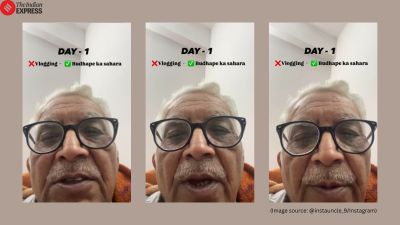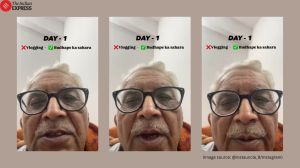Because Its Fun
What,really,is the point of a degree in literature?
What,really,is the point of a degree in literature?
Recently,my 15-year-old cousin was in a bind. Shes absurdly bright,and always wanted to be a doctor,but has been lately thinking of how fun it might be to choose English instead. I reacted with a vehemence that surprised everyone,including me. Unlike many others in my strange family,I insisted she choose medicine.
Doctors,I imagine,dont feel even a scintilla of self-doubt how could they,when every act of theirs,profit-oriented or otherwise,matters so much to others? To study literature,on the other hand,is to sign up for years of feeling conflicted,defensive,insecure,and out of your depth.
I should know I had blazing rows with my father,before I did English for a BA. He thought that for someone who lived largely in her head,an undergraduate education should lead outward,should provide a grid on the world. Economics,history,philosophy,anything but literature. Of course,I pitied his instrumental view of education,his impoverished ideas of use value,and did exactly what I wanted. But now that Ive painted myself into this corner,I do wish someone had explained the stakes more carefully.
Forget the fraught question of a lit PhD there is a whole industry of critique and counsel for that. Funding and jobs are harder than ever,around the world. Im only speaking for those who choose literature for their primary college degree,a decision that ramifies throughout their lives,in ways they dont imagine.
The funny thing is how communication seems to break down when youre arguing for literature degrees with someone sceptical of their worth. A defence of the humanities is nearly impossible to mount in non-humanities terms,without falling back on foggy abstractions. No,its not adding to the sum of knowledge exactly,scholarship is not strictly about rigour and models,nothing is conclusively settled. Its about interpretation,not solving; about searching for meaning,not establishing a theory to end all others. Sometimes,our advocacy can get emotional,when we pretend were arguing for literature,for creativity,rather than academic literary studies.
Hostility to the humanities comes mainly from those who think theory is an elaborate con. Until a few decades ago,no one had a problem with old-fashioned lit crit,closely reading a text widely accepted as a masterpiece. It was when literary study began to question its own project,to look closer at the ideological scaffolding of a book,to investigate its context,to wonder aloud about its silences,that people thought it was getting ahead of itself. They dont realise how these techniques of investigation,of reading against the grain,now influence how we watch a movie or even evaluate a meme. They dont realise how world-altering it must have been to read Foucault or Said for the first time,because those ideas have seeped in so fully. Those suggest that literary studies go back to composition and rhetoric,and learning to appreciate good reading and writing,are conservatives who arent comfortable with those political missions or who dont appreciate their achievements.
But it doesnt help that the bulk of what literature departments produce has neither beauty nor utility visible to the ordinary human eye. Unlike the natural or social sciences that see themselves as steadily advancing,they make a feat of indeterminacy,of complication and revision. Lit types often ask why they are expected to be accessible to the average person,who wouldnt expect the same from a physics journal. But its because they claim to be in the meaning business that they should be prepared to deliver up their own meaning more readily. Much of the stuff that passes for literary study isnt illuminating or surprising,its a fretwork of allusions and predictable conclusions. As Terry Eagleton bluntly put it,those who can,think up feminism or structuralism; those who cant,apply such insights to Moby Dick or The Cat in the Hat.
Dont get me wrong I enjoyed my education,such as it is. Not everything of value is produced out of professional cloisters,and literary-cultural studies is a great way to be a generalist,to be a learner. It gives you the time and luxury to think about ideas and feelings,read and dream abundantly. For a truly interested person,everything glitters. Think of English professor Elaine Scarry using her literary training to write persuasively about torture,or airplane crashes. A literary education leads you outwards,gives you a smattering of insights from anthropology,sociology,history,and politics. And,in Frank Kermodes words,a certain amount of civilisation depends on intelligent smattering.
Of course,Im still insecure about everything I didnt formally learn. And,of course,Id recommend medicine or economics to any young person I care about. But if I hadnt done literature,I would have been the poorer for it.
- 01
- 02
- 03
- 04
- 05






























